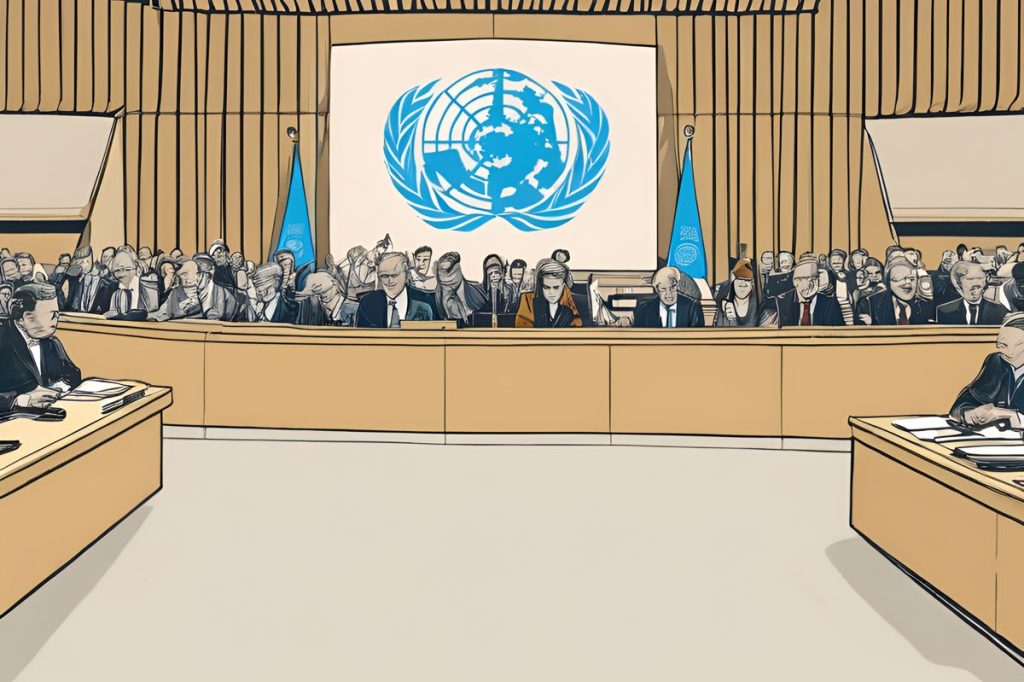Cyprus stands firm in managing migrants independently, rejecting external pressure from UN agencies, while providing humanitarian aid to those in need and maintaining sovereignty over asylum procedures. President Nikos Christodoulides emphasizes cooperation over public interventions and refuses to establish a new irregular migration route, balancing national security with humanitarian concerns amidst challenging climate conditions in the buffer zone.
What is Cyprus’ stance on migrant management amidst international concern?
Cyprus remains steadfast in managing migration issues independently, with President Nikos Christodoulides rejecting external pressure from UN agencies. The government prioritizes humanitarian aid but refuses to establish a new irregular migration route, balancing national security with humanitarian concerns while maintaining sovereignty over its asylum procedures.
Tension with UN Agencies
Cyprus has recently been at the forefront of a contentious debate concerning its handling of migrants in the buffer zone. President Nikos Christodoulides firmly stated that Cyprus would not be receptive to external advice on managing migrant issues. This statement came as a response to concerns raised by the United Nations peacekeeping force (Unficyp) and the UNHCR about the plight of 31 migrants enduring harsh conditions in the buffer zone. The president’s remarks were made public during his attendance at the presentation of the Cyprus Olympic Team in Nicosia.
The president emphasized that while Cyprus is open to providing humanitarian assistance, it will not tolerate public statements that are perceived as pressure tactics. Christodoulides pointed out that cooperation, not public interventions, is the preferred pathway for problem-solving. His administration has repeatedly expressed its commitment to addressing these crucial humanitarian concerns while also safeguarding the nation from becoming a conduit for irregular migration.
Humanitarian Concerns and Government Stance
The situation in the buffer zone is indeed challenging. Migrants have reportedly set up camps in the area, seeking asylum, yet facing exposure to extreme weather conditions including temperatures soaring above 40 degrees Celsius. While assistance in the form of basic necessities has been provided by Unficyp with UNHCR support, living conditions remain dire.
President Christodoulides has made it clear that the government of Cyprus is ready to confront this challenge. However, he categorically rejected the notion of allowing a new irregular migration route. This declaration comes amidst a backdrop of hundreds of migrants having already crossed the buffer zone to seek asylum in Cyprus.
International Relations and Migrant Safety
The safety of migrants is a growing issue within international relations, as highlighted by recent events in Cyprus. The UNHCR has gone as far as to express alarm over the safety of these individuals, and there has been specific criticism regarding the government’s alleged refusal to allow migrants to apply for asylum procedures.
This dispute underscores a broader dilemma faced by small nations like Cyprus, which find themselves grappling with the delicate balance of humanitarian aid, national security, and international diplomacy. As a member of the European Union, Cyprus is part of a larger community where migrant management is a shared concern, yet it also seeks to maintain sovereignty over its own policies and procedures.
Climate Challenges and Migrant Routes
The Mediterranean region, and Cyprus, in particular, is no stranger to the complexities of migration patterns. Geographically, Cyprus is a point of interest for migrants due to its proximity to the Middle East and Africa. The changing climate, leading to more frequent episodes of extreme weather, adds another layer of urgency to the issue. The likelihood of heatwaves, as seen recently, poses additional risks to those who find themselves stranded in environments unfit for prolonged human habitation.
In the broader context, the Republic of Cyprus continues to navigate the geopolitical implications of its geographical position, all the while asserting its stance on migration and border control. As it does so, the well-being of migrants and the respect for their rights remain topics of intense discussion both locally and internationally.
What is Cyprus’ stance on migrant management amidst international concern?
Cyprus remains steadfast in managing migration issues independently, with President Nikos Christodoulides rejecting external pressure from UN agencies. The government prioritizes humanitarian aid but refuses to establish a new irregular migration route, balancing national security with humanitarian concerns while maintaining sovereignty over its asylum procedures.
How has Cyprus addressed tension with UN agencies regarding migrant management in the buffer zone?
Cyprus has been at the forefront of a debate with UN agencies concerning the handling of migrants in the buffer zone. President Nikos Christodoulides firmly stated that Cyprus would not be receptive to external advice on managing migrant issues, stressing the importance of cooperation over public interventions. The government remains committed to addressing humanitarian concerns while safeguarding the nation from becoming a conduit for irregular migration.
What challenges do migrants face in the buffer zone, and how is Cyprus responding to these issues?
Migrants in the buffer zone are facing extreme weather conditions, with temperatures soaring above 40 degrees Celsius. While some humanitarian assistance has been provided, living conditions remain dire. President Christodoulides has expressed readiness to confront the challenge, but has refused to allow a new irregular migration route, highlighting the delicate balance between humanitarian aid and national security.
How does Cyprus navigate international relations and ensure the safety of migrants in light of its geographical position and climate challenges?
Cyprus, as a small nation in the Mediterranean region, faces the complexities of migration patterns due to its proximity to the Middle East and Africa. The changing climate poses additional risks to migrants stranded in challenging environments. As a member of the European Union, Cyprus seeks to balance humanitarian concerns with national security while maintaining sovereignty over its asylum procedures and policies.

